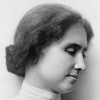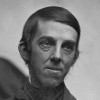“ No human being can rest for any time in a state of equilibrium, where the desire to live and that to depart just balance each other. ”
Oliver Wendell Holmes Sr., The Professor at the Breakfast-Table (1860). copy citation
| Author | Oliver Wendell Holmes Sr. |
|---|---|
| Source | The Professor at the Breakfast-Table |
| Topic | desire balance |
| Date | 1860 |
| Language | English |
| Reference | |
| Note | |
| Weblink | http://www.gutenberg.org/files/2665/2665-h/2665-h.htm |
Context
“But now he was thinking of that other state, where, free from all mortal impediments, the memory of his sorrowful burden should be only as that of the case he has shed to the insect whose “deep-damasked wings” beat off the golden dust of the lily-anthers, as he flutters in the ecstasy of his new life over their full-blown summer glories.
No human being can rest for any time in a state of equilibrium, where the desire to live and that to depart just balance each other. If one has a house, which he has lived and always means to live in, he pleases himself with the thought of all the conveniences it offers him, and thinks little of its wants and imperfections. But once having made up his mind to move to a better, every incommodity starts out upon him, until the very ground-plan of it seems to have changed in his mind, and his thoughts and affections, each one of them packing up its little bundle of circumstances, have quitted their several chambers and nooks and migrated to the new home, long before its apartments are ready to receive their coming tenant.”
source



